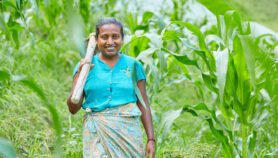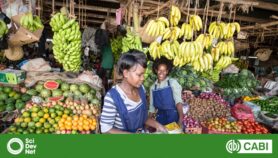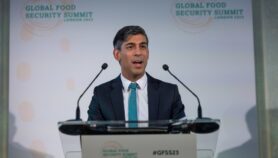By: Zablon Odhiambo
Send to a friend
The details you provide on this page will not be used to send unsolicited email, and will not be sold to a 3rd party. See privacy policy.
Africa’s soils are being stripped of nutrients so fast that 75 per cent of farmland is now severely degraded, says a report released yesterday (30 March).
Unless African farmers boost their use of fertiliser significantly, they will struggle to produce enough food for the continent, says the report by the International Center for Soil Fertility and Agricultural Development (IFDC).
Speaking at the report’s launch in New York, Nigerian president Olusegun Obasanjo called on fellow African leaders to tackle the problem. Nigeria will host an international summit in June to identify ways of doing this.
“When farmers plant the same fields season after season and cannot afford to replace nutrients taken up by their crops, the soil is literally mined of life,” says IFDC president Amit Roy.
The report says that from 2002-2004, about 85 per cent of African farmland lost more than 30 kilograms of nutrients per hectare per year. In Angola, Burundi, Congo, Guinea, Rwanda and Uganda, annual losses were more than 60 kilograms per hectare.
Fertiliser use is lower in Africa than anywhere else, amounting to less than ten per cent of the global average. Fertilisers cost two to six times more in Africa than elsewhere — a price that is too high for most farmers there.
Roy says that by applying minimal amounts of fertiliser precisely where they are needed, farmers could both raise their profits and help to rebuild the soil.
The June summit in Nigeria will aim to identify ways to cut fertiliser costs and encourage investment in fertiliser manufacturing within Africa.
The summit’s steering committee includes senior agriculture experts: Norman Borlaug, who won the Nobel Peace Prize in 1970 for developing the high-yielding wheat varieties of the ‘green revolution’; UN Food and Agriculture Organization director-general Jacques Diouf; and Lennart Bage, president of the International Fund for Agricultural Development.













